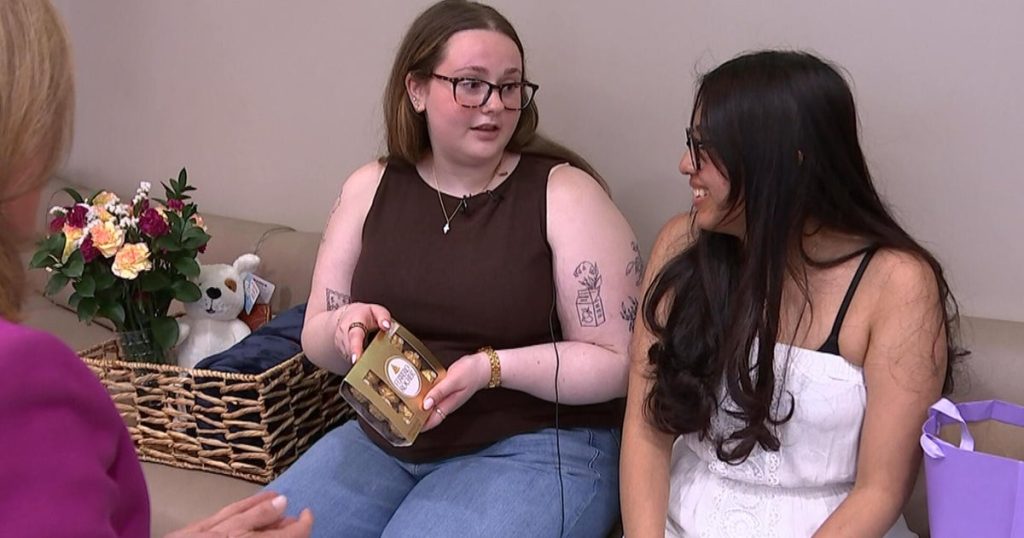A remarkable meeting took place at Temple Hospital on Friday, as transplant recipients and kidney donors gathered for the first time in a special event. Among them, seventeen-year-old Evelyn Bautista and twenty-one-year-old Megan Bosack shared a profound connection, rooted in a life-saving kidney transplant. The unique encounter celebrates the impact of altruistic organ donation and highlights the resilience of patients navigating the complexities of kidney health.
| Article Subheadings |
|---|
| 1) A Life-Saving Connection |
| 2) Understanding Altruistic Donations |
| 3) The Medical Journey |
| 4) The Emotional Impact |
| 5) Future Aspirations |
A Life-Saving Connection
The event at Temple Hospital was an emotional gathering, marking a significant milestone in the lives of its participants. Evelyn Bautista met Megan Bosack, who donated one of her kidneys to the teenager, allowing her to escape a life dependent on dialysis. For Bautista, this moment represented a new beginning, one filled with hope and life. The two women not only shared the reality of a transplant but also a connection that extends beyond medical necessity—a bond rooted in compassion and altruism.
Understanding Altruistic Donations
Altruistic donation is a noble act where a kidney is donated without a direct recipient in mind. Megan Bosack, diagnosed with nutcracker syndrome—a condition causing severe pain due to vein compression—decided to donate her kidney for the sake of helping someone else in need. As Bosack said, “I just thought I have a perfectly healthy kidney; I could give someone else a completely new chance at life.” This selfless decision is crucial in a system that often relies on familial or paired donation. It demonstrates that the gift of life can stem from pure altruism, expanding the pool of potential donors significantly.
The Medical Journey
The medical journey leading to this life-saving transplant involved rigorous evaluations for both the donor and recipient. Dr. Kenneth Chavin, an expert in kidney-related conditions at Temple University Hospital, facilitated the procedures that changed both women’s lives. Following the decision to donate, Megan Bosack underwent careful screening, which confirmed her suitability as a donor. After the surgery, she expressed her relief and happiness, stating, “I feel much better.” Evelyn Bautista, on the other hand, had been living with congenital kidney failure and faced numerous challenges, including the stress of dialysis treatments until her transplant on April 7. The medically significant event marked a critical turning point in her health and well-being.
The Emotional Impact
This meeting was not just a confluence of medical timelines but also rich with emotional significance. Evelyn Bautista expressed deep gratitude, stating, “She gave me the opportunity of life; it means a lot to me.” The act of donation symbolizes more than just a medical procedure; it encompasses themes of sacrifice, empathy, and human connection. Each participant brought gifts for one another, highlighting the bond formed through this extraordinary act. Their new motto, “Girls With One Kidney Have More Fun,” encapsulates their shared experiences and newfound friendship, reflecting a positive outlook following an intense medical journey.
Future Aspirations
As Evelyn Bautista embraces her new lease on life, she is also contemplating her future. Having faced significant health challenges, she is now inspired to study medicine and potentially become a nurse. She envisions her career as a tribute to the intervention that saved her life. The transplantation experience not only transformed Bautista’s health but also sparked a desire to give back to others in need, illustrating how life-saving moments can inspire meaningful career paths and opportunities for future generations.
| No. | Key Points |
|---|---|
| 1 | The event celebrated the connection between kidney donors and recipients. |
| 2 | Altruistic donations play a vital role in organ transplantation. |
| 3 | Medical evaluations are critical for both donors and recipients. |
| 4 | The emotional significance of organ donation fosters deep connections. |
| 5 | Personal journeys after transplantation can lead to transformative career aspirations. |
Summary
The meeting between Evelyn Bautista and Megan Bosack at Temple Hospital underscores the profound impact of kidney donations. Their story highlights the selflessness of altruistic organ donors and the transformative potential of such life-changing gifts. As both women embark on their new journeys—Bautista toward a career in medicine and Bosack into a healthier life—they represent the hope and resilience that can emerge from the challenges of chronic illness.
Frequently Asked Questions
Question: What is altruistic organ donation?
Altruistic organ donation involves donating an organ, such as a kidney, to someone in need without knowing the recipient personally. It is a selfless act aimed at helping others regain their health and quality of life.
Question: What are the medical requirements for organ donation?
Potential donors undergo thorough medical evaluations to ensure they are suitable candidates for donation. These assessments include health history reviews and physical examinations to minimize risks for both the donor and recipient.
Question: How does organ transplantation impact the lives of recipients?
For recipients, organ transplantation can significantly improve health, allowing for a more active and fulfilling life. It often allows individuals to overcome debilitating conditions and pursue future goals that may have seemed unrealistic before receiving the transplant.


